AFRICAN GAME TRAILS
AN ACCOUNT OF THE
AFRICAN WANDERINGS
OF AN
AMERICAN HUNTERNATURALIST
BY
THEODORE ROOSEVELT
NEW INTRODUCTION BY
H. W. BRANDS
WITH MORE THAN TWO HUNDRED ILLUSTRATIONS FROM PHOTOGRAPHS BY
KERMIT ROOSEVELT AND OTHER MEMBERS OF THE EXPEDITION
AND FROM DRAWINGS BY PHILIP R. GOODWIN

First Cooper Square Press edition 2001
This Cooper Square Press paperback edition of African Game Trails is an unabridged republication of the edition first published in New York in 1910, with the exception of eight color illustrations herein reproduced in black and white and the addition of a new introduction by H.W. Brands.
New introduction copyright 2001 by H.W. Brands
All rights reserved.
No part of this book may be reproduced in any form or by any electronic or mechanical means, including information storage and retrieval systems, without written permission from the publisher, except by a reviewer who may quote passages in a review.
Published by Cooper Square Press
An Imprint of the Rowman & Littlefield Publishing Group
150 Fifth Avenue, Suite 911
New York, New York 10011
Distributed by National Book Network
Library of Congress Cataloging-in-Publication Data
Roosevelt, Theodore, 18581919.
African game trails : an account of the African wanderings of an American hunternaturalist / by Theodore Roosevelt ; new introduction by H.W. Brands.
p. cm.
Originally published: New York : Scribner, 1910.
ISBN 0-8154-1132-4 (pbk. : alk. paper) ISBN 978-0-8154-1132-1
1. Hunting Africa, East. 2. Africa, East Description and travel. I. Title.
SK252 .R64 2001
799.29676 dc21
2001017204
 The paper used in this publication meets the minimum requirements of American National Standard for Information Sciences Permanence of Paper for Printed Library Materials, ANSI/NISO Z39.481992.
The paper used in this publication meets the minimum requirements of American National Standard for Information Sciences Permanence of Paper for Printed Library Materials, ANSI/NISO Z39.481992.
Manufactured in the United States of America.
TO
KERMIT ROOSEVELT
MY SIDEPARTNER
IN OUR
GREAT ADVENTURE
INTRODUCTION TO THE COOPER SQUARE PRESS EDITION
WHEN Theodore Roosevelt sailed from New York for Africa in the spring of 1909, glasses were raised on Wall Street. Health to the lions! was the toast among the countrys foremost capitalists. J. P. Morgan urged every lion to do his duty.
The precise words may have been apocryphal, but the sentiment was real enough. By the end of his seven-and-a-half years as president, Roosevelt was the bte noire of Morgan and the other men who commanded the American economy. Roosevelt denied them the respect that they considered their due. He had the effrontery to assert that the American people, acting through their elected officials, possessed the right to make basic decisions about the organization of the economydecisions that constrained the activities of the corporate barons and infringed upon the sanctity of private property. No wonder Morgan and the others were delighted to see him leave the country. They would have been more delighted had he never returned.
Roosevelt reveled in their enmity. He appreciated the value of enemies, and he recognized that there were no enemies more valuable than the directors of Americas great trusts. When Roosevelt spoke of the criminal rich, he knew he would stir a hornets nest among a traditionally Republican constituency, but as the leader of the Republican Party, he calculated that the big money had nowhere else to go, and that by belaboring the big money, he might win over some Democrats. It was an audacious strategy, but Roosevelt was nothing if not audacious. And the strategy worked: Roosevelts handpicked successor, William Howard Taft, waltzed to victory in November 1908, leaving Roosevelt to retire in glory.
But that same audacity, and the energy that inspired it, kept Roosevelt from really retiring. He was youngbarely fifty years old. There was much he wanted to do with his life. From his youth he had craved challenges, especially those involving the outdoors. The world of natureanything that flew, swam, walked, ran, or climbedfascinated him. (Plants interested him less.) He took up hunting as a way of satisfying both his craving and his fascination, as both sport and science. Even as a youth, he kept a log of what he had shot; excerptswith time and place of killoccasionally found their way into ornithological journals.
As he matured, he pursued bigger game. He killed his first buffalo in Dakota Territory in 1883. I never saw anyone so enthused in my life, recalled his guide from that hunt, who added that the young mans excitement was infectious. He was so eager to shoot his first buffalo that it somehow got into my blood, and I wanted to see him kill his first one as badly as he wanted to kill it.
Roosevelt chased grizzly bears into the Big Horn Mountains of Wyoming. He labored under a handicapsevere nearsightednessthat might have deterred other would-be Boones and Crocketts, but in his case it simply meant he had to get closer before pulling the trigger. I found myself face to face with the great bear, who was less than twenty-five feet off, not eight steps, he wrote his sister regarding his first grizzly. From that distance it was kill or be killed. Doubtless my face was pretty white, but the blue barrel was steady.... As you will see when I bring home his skin, the bullet hole in his skull was as exactly between his eyes as if I had measured the distance with a carpenters rule.
Roosevelt kept hunting after entering politics. He pursued cougar and lynxlion and cat, the locals called themin Colorado, with dogs that could climb trees to flush the felines and that could run all day to bring them to ground. Roosevelt delivered the coup de grace to one cougar cornered by the pack. I ran in and stabbed him behind the shoulder, thrusting the knife you loaned me right into his heart, he told his eldest son. I have always wished to kill a cougar as I did this one, with dogs and the knife.
Yet after entering the White House upon the assassination of William McKinley in September 1901, Roosevelt discovered that presidents hunt only with difficulty. Reporters tracked his every move, frightening the game and frequently placing themselves in the line of fire. If the hunt was successful despite the crowd, the president was cast as a slaughterer of innocent wildlife; if it failed, he was portrayed as inept. After a 1902 bear hunt in Mississippi (during which his refusal to kill a helpless bear gave birth to the Teddy bear), Roosevelt lamented to one of his hunting friends that all the hoopla surrounding the expedition had made it a cross between a hunt and a picnic. He continued, As a picnic it was pleasant enough, but as a hunt simply exasperating.
But Roosevelt never lost his taste for the chase, and as the end of his presidency approached, he laid plans for the greatest hunt of his life. He had always dreamed of going to Africa and taking on the most formidable beasts on earth: the lion, the elephant, the rhinoceros, the (true) buffalo. A safari would serve two further purposes, one scientific, the other political. The Smithsonian Institution in Washington was looking for specimens for its displays; whatever Roosevelt shot could be preserved and donated to science. The political purpose related to the hostility that Roosevelt had engendered among the lions of Wall Street. The departing president had no desire to burden Taft with the perception that he was simply Roosevelts puppet. The farther Roosevelt got from Washington, the sooner Taft would develop a reputation as his own manand the better, Roosevelt hoped, he would be able to continue the fight against the fat cats.
Next page


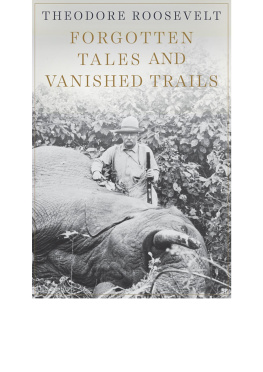
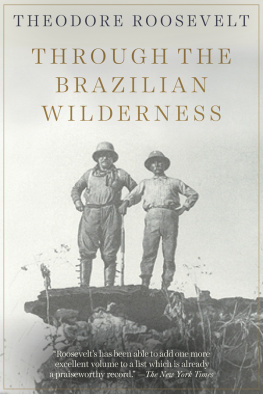
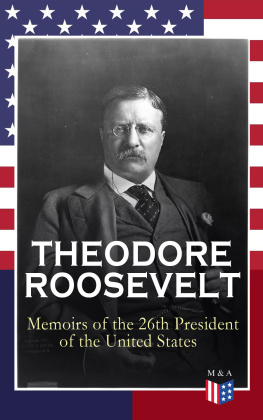
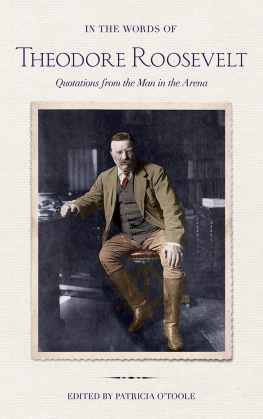
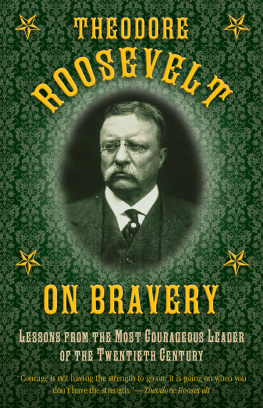
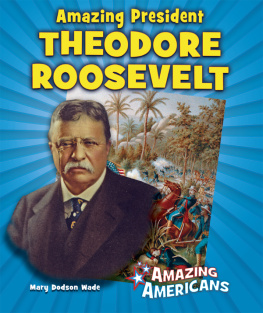
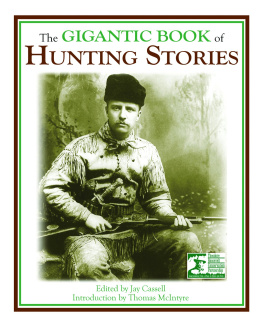
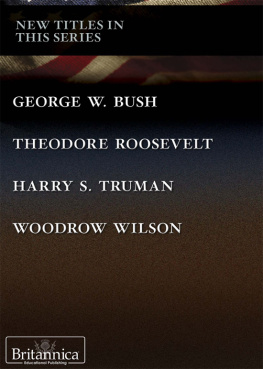
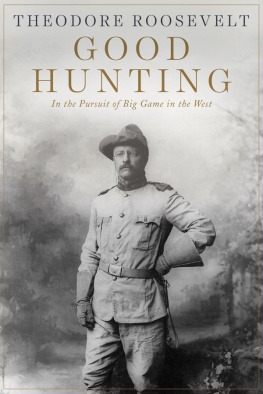
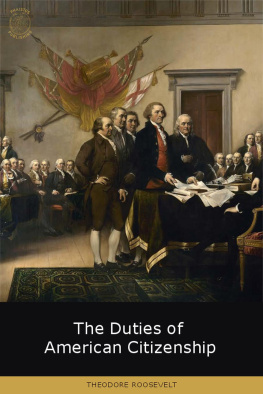
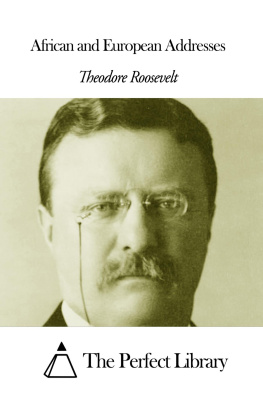
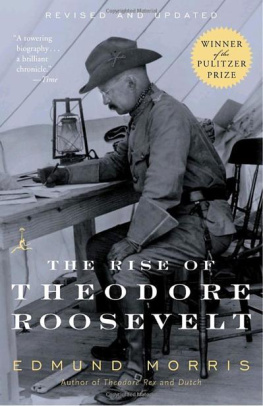
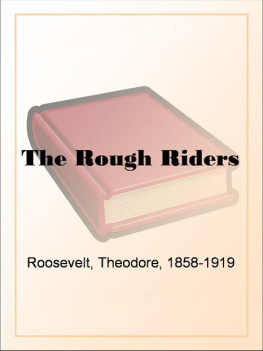

 The paper used in this publication meets the minimum requirements of American National Standard for Information Sciences Permanence of Paper for Printed Library Materials, ANSI/NISO Z39.481992.
The paper used in this publication meets the minimum requirements of American National Standard for Information Sciences Permanence of Paper for Printed Library Materials, ANSI/NISO Z39.481992.